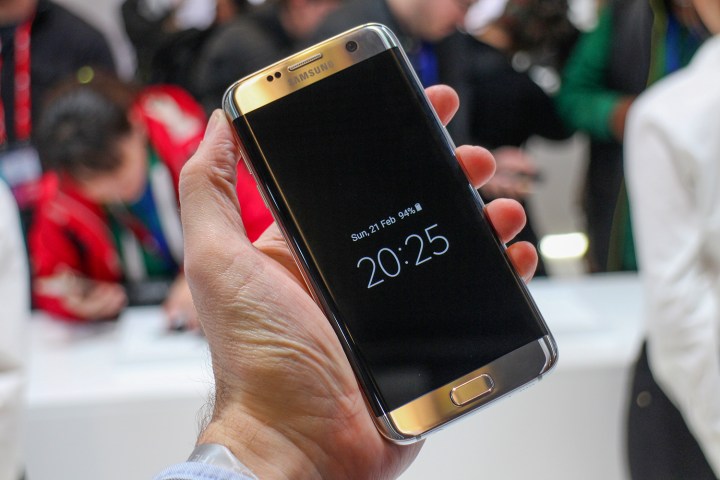
Prolific YouTuber Jerome Ortega ran the Galaxy S7 through its paces, recording with the handset’s built-in stopwatch the length of time it took to launch a predefined sequence of apps and games. He then did the same with the Nexus 6P, Moto X Pure, and iPhone 6S, quickly opening the same series of apps. The result? The Galaxy S7 edge fared well against the Nexus 6P and Moto X Pure, besting the former by two seconds and the latter by 16, but fell 17 seconds short of the iPhone 6s’s time.
On paper, that last result’s a tad surprising. The Galaxy S6 edge packs Qualcomm’s bleeding-edge quad-core Snapdragon 820 processor and 4GB of RAM, a much newer and theoretically better package than the iPhone 6s’s dual-core Apple A9 chip and 2GB of RAM. But Ortega’s findings largely line up with results from cross-platform benchmarking apps: online statistics from GFXBench show the Snapdragon 820 and A9 trading blows in 3D rendering tests.
Thermal issues may be partly at fault. In a detailed rundown of the Galaxy S7 edge, Android enthusiast community XDA Developers recorded mild throttling, or the forced slowing of hardware components due to heat buildup, during more intensive tests. The reviewers noted that the Galaxy S7’s thermal performance seemed improved over handsets packing Qualcomm’s older 810 processor, but that in severe cases, the handset became unresponsive for seconds on end.
Software’s another potential culprit. The Galaxy S7 hasn’t formally hit store shelves (and won’t until March 11). so it’s quite possible that Samsung has a few last-minute tweaks in store. That’d be par for the course: shortly after the launch of the Galaxy S6 last year, the company released a memory management fix that dramatically improved the smartphone’s responsiveness.
Ultimately, speed tests like these need be taken with a grain of salt — it’s tough to account for every variable that might affect performance. Still, if the numbers are any indication, the hardware gulf between Apple’s and Samsung’s flagships may not be as wide as anticipated.


